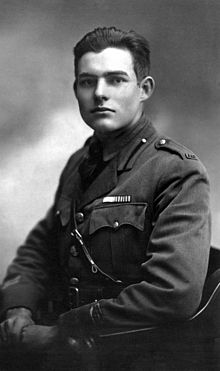The Old Man and The Sea: The Lesson for the Overconfident
Ernest Hemingway's The Old Man and The Sea is a novel that illustrates the story of an old, nature-lover named Santiago and his grueling, three-day trip out into the open sea. A well-articulated question can be whether the protagonist went too far on his quest through the blue waters. Surely the question of whether Santiago went too far out or not is debatable, but the more reasonable stance is that he did, in fact, go too far. In the three stages of Santiago's sea journey, his heap of confidence leads him on an expedition that causes him to end in an apparent failure when his brother, a fish, is mauled to death by sharks. His pity for his brother turns into a lesson for the old fisherman, who finally understands where his ability lies.

| Completion status: this resource is considered to be ready for use. |
| Educational level: this is a secondary education resource. |
| Subject classification: this is an English language and literature resource. |
| Resource type: this resource is about Emotions. |
Where did the old, ambitious sea-lover originally get his confidence? This confidence was possibly spawned from his sighting of "lions on the beaches in the evening" (Hemingway 21) in Africa. This event greatly affected him to the point that he continues to remember the lively moments in his head: "Up the road, in his shack, the old man was sleeping again. He was still sleeping on his face and the boy was sitting by him watching him. The old man was dreaming about the lions" (124). The lions are known for being strong, which inspired them. He also had moments where he truly proved himself to be alike the lions on the beach when he won a grueling, 24-hour arm-wrestling match against "the great negro from Cienfuegos" (69). Afterward, he was called "The Champion" for his outstanding match against his opponent (“For a long time after that everyone had called The Champion” (70)). These factors contributed to his level of confidence to go out far into the sea, where he found an unexpected friend.
As the overconfident man he was, he sailed out to sea. He found a large marlin who was able to take control of his boat and referred to him as his brother. “I wish I could feed the fish. He is my brother” (59). He thought. Eventually, Santiago lands the fish but is unable to hoist the 18-foot Marlin into the boat. He fastens the fish to the side of his small boat. First thrilled by the triumph of the catch and the spoils it will bring, Santiago is ultimately defeated when sharks begin to feed on Marlin’s meat during the trip back to shore; Santiago, feeling unworthy, is filled with so much remorse that he apologizes to the fish: "I shouldn’t have gone out so far... Neither for you nor for me. I’m sorry, fish" (110). Overall, he realizes that he made a huge mistake and he accepts defeat, as the author portrays it, "It is easy when you are beaten." I never knew how easy it was. And what beat you? He thought. ‘Nothing,’ he said aloud. ‘I went out too far’" (199). This episode of despair turns into a learning experience for the old man.
Santiago realizes his mistake of going out too far, telling himself "...you violated your luck when you went too far outside." (116). This luck can be interpreted as his capabilities and the fact that he went past his abilities to perform well out in the sea when he went past his normal boundaries. He also went up to the young boy who he fishes with, Manolin, and apologized to him: "I am sorry that I went too far out. I ruined us both. But we have killed many sharks, you and I, and ruined many others" (115). He understands that he committed a wrongful act when he went too far out to sea, causing harm to himself, the great Marlin, and many others (possibly Manolin, his wealth, his health, etc.).
The protagonist’s sea journey through overconfidence, sorrow, and lesson-learning provides an eye-opening realization for many book readers. Ultimately, Hemingway brings the moral home: Being confident is a good thing, but it's important to understand boundaries and capabilities. One needs to realize his abilities to save himself from the pity and sorrow that the old man suffered.